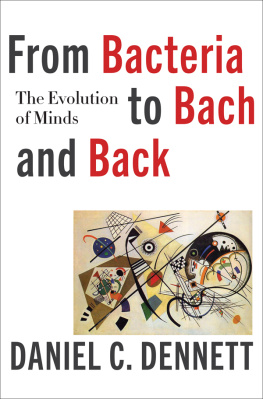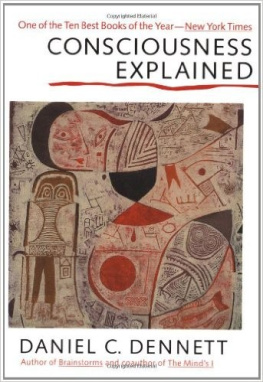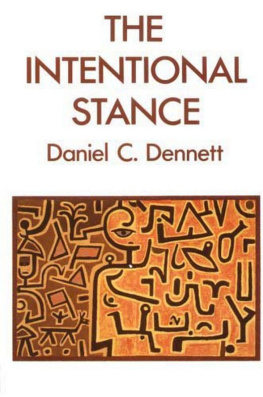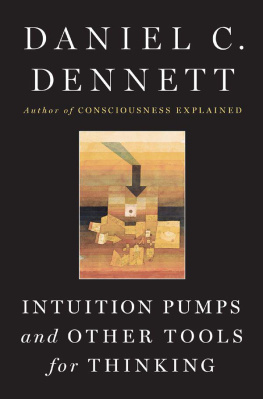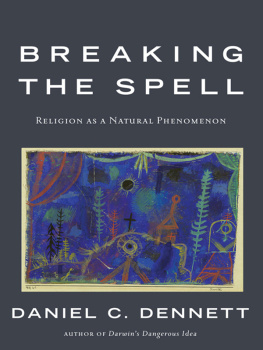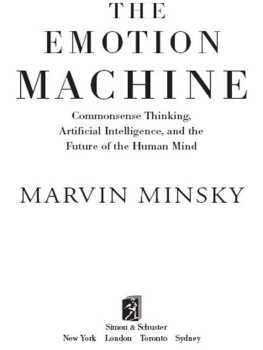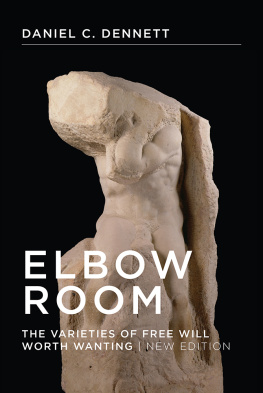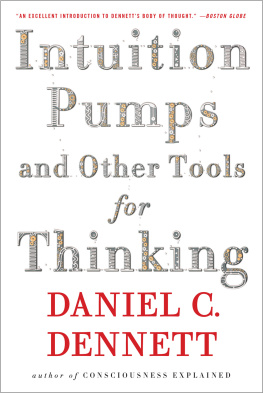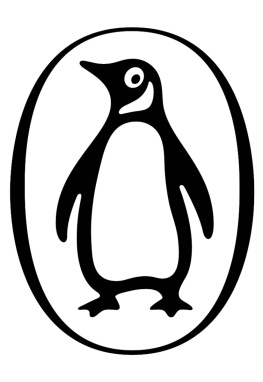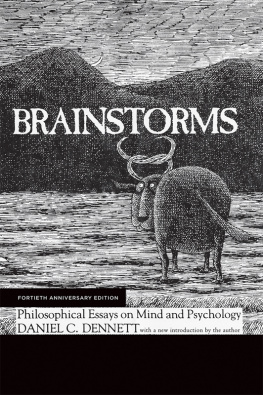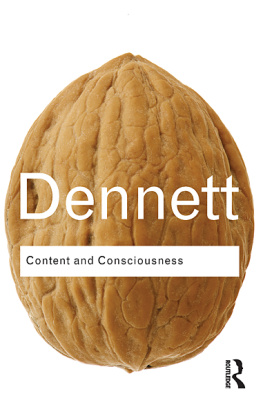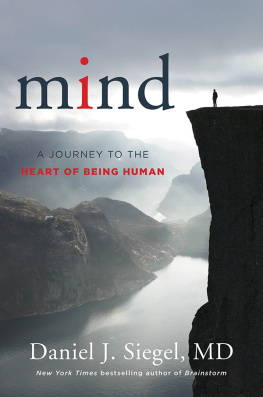Science Masters
These books admirably achieve what the series sets out to do to explain exciting science clearly
Sunday Times
The whole series... manages to tell powerful stories very simply and very cheaply. What more could you want?
Science Now
The Science Master series looks set to play a major role in the responsible popularisation of science
New Scientist
Kinds of Minds
Provoking but clarifying... Daniel Dennetts book is a memorable and stimulating work of popular scientific explanation
Observer
A thought-provoking, well-written read
Times Higher Educational Supplement
Beautifully written... Kinds of Minds is woven around a series of questions, asked with a new sophistication... These are questions that have been asked before but Dennett brings to them a new freshness and takes the reader on an entertaining journey through the world of animals and robots... provocative and entertaining
Financial Times
Thought-provoking, entertainingly written and, quite literally, mind-blowing
New Scientist
Kinds of Minds
THE ORIGINS OF CONSCIOUSNESS
Daniel C. Dennett

CONTENTS


I am a philosopher, not a scientist, and we philosophers are better at questions than answers. I havent begun by insulting myself and my discipline, in spite of first appearances. Finding better questions to ask, and breaking old habits and traditions of asking, is a very difficult part of the grand human project of understanding ourselves and our world. Philosophers can make a fine contribution to this investigation, exploiting their professionally honed talents as question critics, provided they keep an open mind and restrain themselves from trying to answer all the questions from obvious first principles. There are many ways of asking questions about different kinds of minds, and my waythe way I will introduce in this bookchanges almost daily, getting refined and enlarged, corrected and revised, as I learn of new discoveries, new theories, new problems. I will introduce the set of fundamental assumptions that hold my way together and give it a stable and recognizable pattern, but the most exciting parts of this way are at the changeable fringes of the pattern, where the action is. The main point of this book is to present the questions Im asking right nowand some of them will probably lead nowhere, so let the reader beware. But my way of asking questions has a pretty good track record over the years, evolving quite smoothly to incorporate new discoveries, some of which were provoked by my earlier questions. Other philosophers have offered rival ways of asking the questions about minds, but the most influential of these ways, in spite of their initial attractiveness, lead to self-contradictions, quandaries, or blank walls of mystery, as I will demonstrate. So it is with confidence that I recommend my current candidates for the good questions.
Our minds are complex fabrics, woven from many different strands and incorporating many different designs. Some of these elements are as old as life itself, and others are as new as todays technology. Our minds are just like the minds of other animals in many respects and utterly unlike them in others. An evolutionary perspective can help us see how and why these elements of minds came to take on the shapes they have, but no single straight run through time, from microbes to man, will reveal the moment of arrival of each new thread. So in what follows I have had to weave back and forth between simple and complex minds, reaching back again and again for themes that must be added, until eventually we arrive at something that is recognizably a human mind. Then we can look back, one more time, to survey the differences encountered and assess some of their implications.
Early drafts of this book were presented as the Agnes Cuming Lectures at University College, Dublin, and in my public lectures as Erskine Fellow at Canterbury University, Christchurch, New Zealand, in May and June of 1995. I want to thank the faculty and students at those institutions, whose constructive discussions helped make the final draft almost unrecognizably different, and (I trust) better. I also want to thank Marc Hauser, Alva No, Wei Cui, Shannon Densmore, Tom Schuman, Pascal Buckley, Jerry Lyons, Sara Lippincott, and my students in Language and Mind at Tufts, who read and vigorously criticized the penultimate draft.
Tufts University
December 20, 1995

Can we ever really know what is going on in someone elses mind? Can a woman ever know what it is like to be a man? What experiences does a baby have during childbirth? What experiences, if any, does a fetus have in its mothers womb? And what of nonhuman minds? What do horses think about? Why arent vultures nauseated by the rotting carcasses they eat? When a fish has a hook sticking through its lip, does it hurt the fish as much as it would hurt you, if you had a hook sticking through your lip? Can spiders think, or are they just tiny robots, mindlessly making their elegant webs? For that matter, why couldnt a robotif it was fancy enoughbe conscious? There are robots that can move around and manipulate things almost as adeptly as spiders; could a more complicated robot feel pain, and worry about its future, the way a person can? Or is there some unbridgeable chasm separating the robots (and maybe the spiders and insects and other clever but mindless creatures) from those animals that have minds? Could it be that all animals except human beings are really mindless robots? Ren Descartes notoriously maintained this in the seventeenth century. Might he have been dead wrong? Could it be that all animals, and even plantsand even bacteriahave minds?
Or, to swing to the other extreme, are we so sure that all human beings have minds? Maybe (to take the most extreme case of all) youre the only mind in the universe; maybe everything else, including the apparent author of this book, is a mere mindless machine. This strange idea first occurred to me when I was a young child, and perhaps it did to you as well. Roughly a third of my students claim that they, too, invented it on their own and mulled it over when they were children. They are often amused to learn that its such a common philosophical hypothesis that it has a namesolipsism (from Latin for myself alone). Nobody ever takes solipsism seriously for long, as far as we know, but it does raise an important challenge: if we know that solipsism is sillyif we know that there are other mindshow do we know?
What kinds of minds are there? And how do we know? The first question is about what existsabout ontology, in philosophical parlance; the second question is about our knowledgeabout epistemology. The goal of this book is not to answer these two questions once and for all, but rather to show why these questions have to be answered together. Philosophers often warn against confusing ontological questions with epistemological questions. What exists is one thing, they say, and what we can know about it is something else. There may be things that are completely unknowable to us, so we must be careful not to treat the limits of our knowledge as sure guides to the limits of what there is. I agree that this is good general advice, but I will argue that we already know enough about minds to know that one of the things that makes them different from everything else in the universe is the


